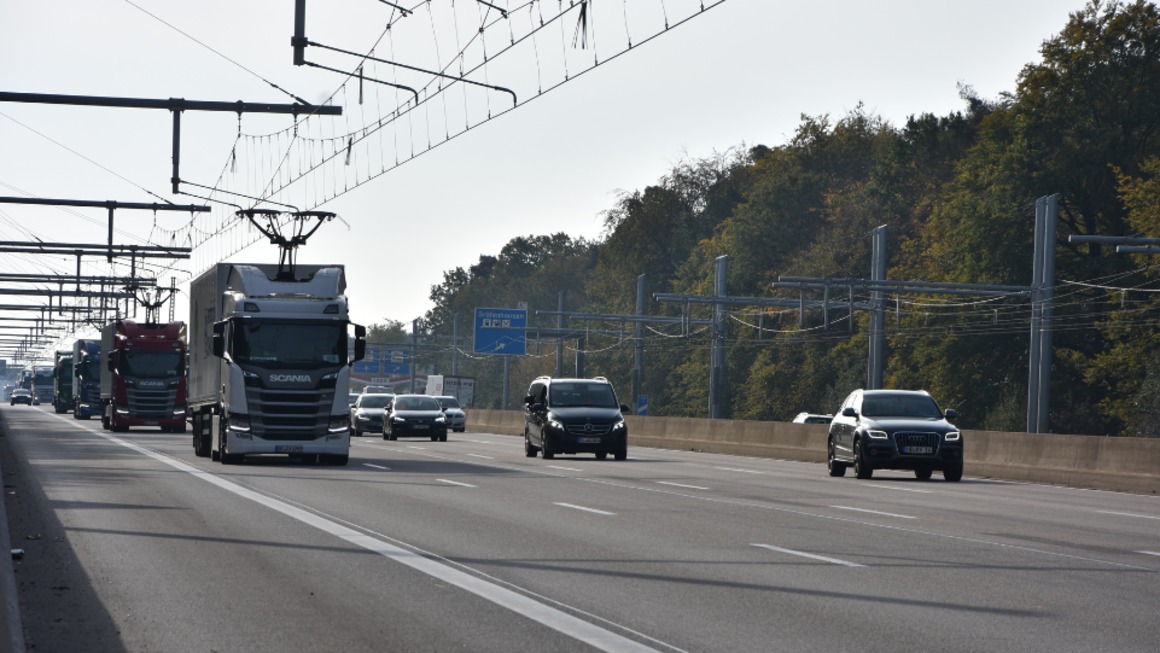Road feeder services getting closer to zero emissions with electric project
28 / 02 / 2023

Copyright: Hessen Mobil 2019
DSV is participating in a research project to test and establish an eHighway that could enable fully electric long-distance road freight.
The ELISA eHighway project is being carried out in Frankfurt Germany to establish an electric highway that allows for on-the-go charging of electric vehicles, eliminating downtime spent on charging and eventually enabling a transition to electric long-distance trucks.
Through the ELISA eHighway project, trucks driving on eHighway test tracks are equipped with roof sensors that detect an overhead contact line above the truck, which then connects to the line through a pantograph and charges while driving.
The project envisions a future where an electrified highway could stretch through Europe.
Freight forwarder DSV is collaborating with researchers from the Institute of Transport Planning and Traffic Engineering at the Technical University of Darmstadt who are collecting and analysing data to scientifically evaluate the development of the eHighway.
Since the beginning of February, a subcontracted DSV driver has been using the 10, soon to be 17, km eHighway test track, transporting customers’ goods to and from Frankfurt Airport.
Through a data logger in the truck, data concerning more than 150 parameters such as battery charging state and fuel rate is sent to researchers from the Institute of Transport Planning and Traffic Engineering at the Technical University of Darmstadt.
Additionally, the researchers conduct weekly evaluation interviews with the driver.
“We are excited to provide daily data from actual operations, which can help in the development of the eHighway,” said Søren Schmidt, chief executive, DSV Road.
However, there are considerable limitations that hinder a smooth and successful shift to especially long-distance electric trucks, pointed out DSV.
“Without the right levels of infrastructure, there is a danger that charging stations will be the Suez Canal of road transportation and the cause of significant delays and congestion for electric vehicles,” said Schmidt.
“If the eHighway is established and expanded across Europe, it would create new possibilities when it comes to introducing long-distance electric trucks and offer lower-emission services without any delays for our customers.”
In addition to the track in Frankfurt, the project includes test tracks in Stuttgart and Lübeck. The current phase of the project runs until the end of 2024.
Project partners are applying for funding for a potential next phase.
DSV said new technologies such as long-distance electric road freight will be central to the company achieving its 2030 ambition to lower its indirect emissions by 30% and achieve net-zero emissions by 2050.













